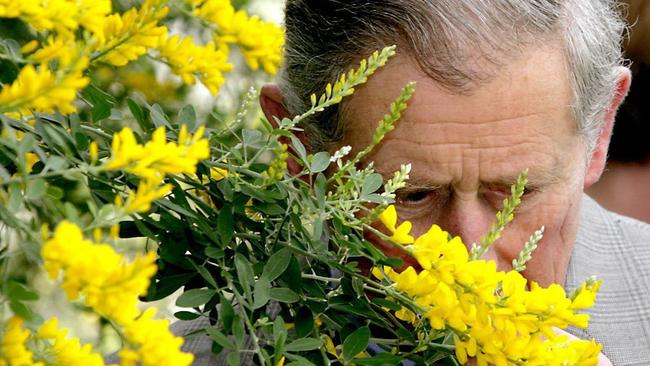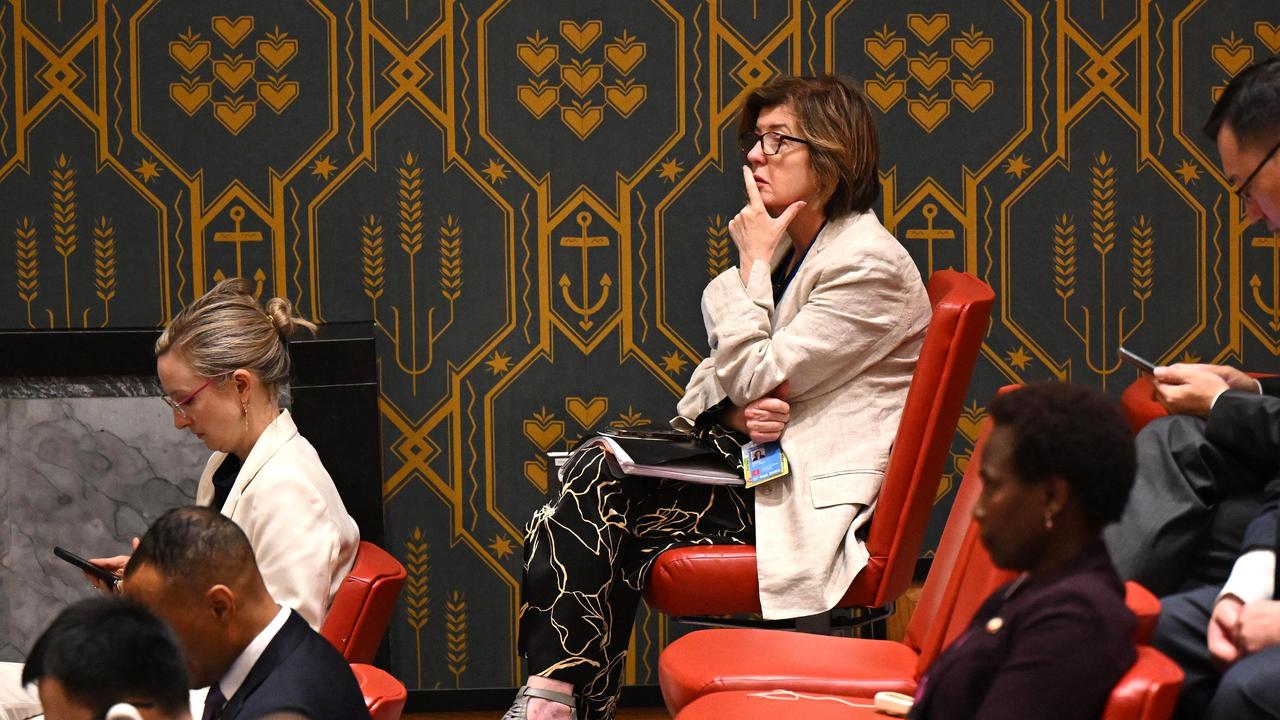Plants can smell but they’re not great listeners, Prince Charles
In the bowl of an extinct volcano in California, a botanist is busy trying to establish that plants have personalities.

Thirty-six years have passed since the Prince of Wales admitted conversing with his geraniums and he is yet to live it down. Now there is evidence that the prince was on the right lines at least.
In the bowl of an extinct volcano in California, a botanist is busy trying to establish that plants have personalities.
Rick Karban of the University of California, Davis, has spent decades studying signals and communications between sagebrush plants and distinctions in the way that individual plants respond to predators.
Some appear more skittish than others, in the way they respond to the arrival of a beetle or the foot of an investigating botanist, giving off blends of scents that are detected by other plants.
Professor Karban said plants had also been shown to be more sensitive to blends of scents, or chemotypes, that are their own, in a manner “that may be analogous to language dialects”.
Past research had shown that “plants respond to the cues of all other individual sagebrush but they respond more strongly to the cues of individuals that share their same chemotype. These chemotypes are heritable so that we have also found that individuals respond more effectively to the cues of relatives more than to the cues of strangers.”
It also appears that other sagebrush plants might take more account of a distress signal from a hardier plant than one from a sagebrush with an excitable personality. “We do have evidence of that, that has not yet been published,” he said.
Professor Karban is collaborating on a plant personality paper with a behavioural ecologist in Quebec who has studied the same phenomenon in chipmunks. Even allowing for differences in age, sex, or social status in their community, certain chipmunks appeared more nervous by disposition than others, Charline Couchoux told Bloomberg.
“Some guys would be eating seeds and a leaf falls on the ground. They panic and they make a call,” she said. “Some guys just keep foraging.”
Although Professor Karban has been busy trying to apply lessons from psychology about decision-making to the plant world, and cites studies showing that plants are capable of memory and anticipation, he says there is still no evidence that plants respond to the human voice, even if that human is a prince.
“There has been a lot of interest in whether or not plants are aware of us,” he said. “Can we talk to them and have them understand? Do they like different kinds of music? There is basically no controlled, repeatable experiments confirming that.”
He added: “It makes sense that plants are going to be both sensitive to things in their environment and those things that they are going to be sensitive to are those things in their environment. Humans talking to them doesn’t make any sense.”
Prince Charles’s discourses with flower beds were mocked on Spitting Image, which had the prince singing mournfully that “My flowers don’t love me, / It’s not like it was before, / My flowers don’t love me, / And we’re not talking, / Any more.”
More recently pop singer Katy Perry offered to help Charles. “He asked me if I would sing to his plants, and I will in the future,” Perry told a charity reception in February.
Professor Karban does not believe it will have much effect. “Despite a lot of popular information and claims to the contrary, nobody has been able to find evidence that that’s the case,” he said. “I’m afraid I can’t help Prince Charles.”
No sagebrush plants were available for comment.
The Times


